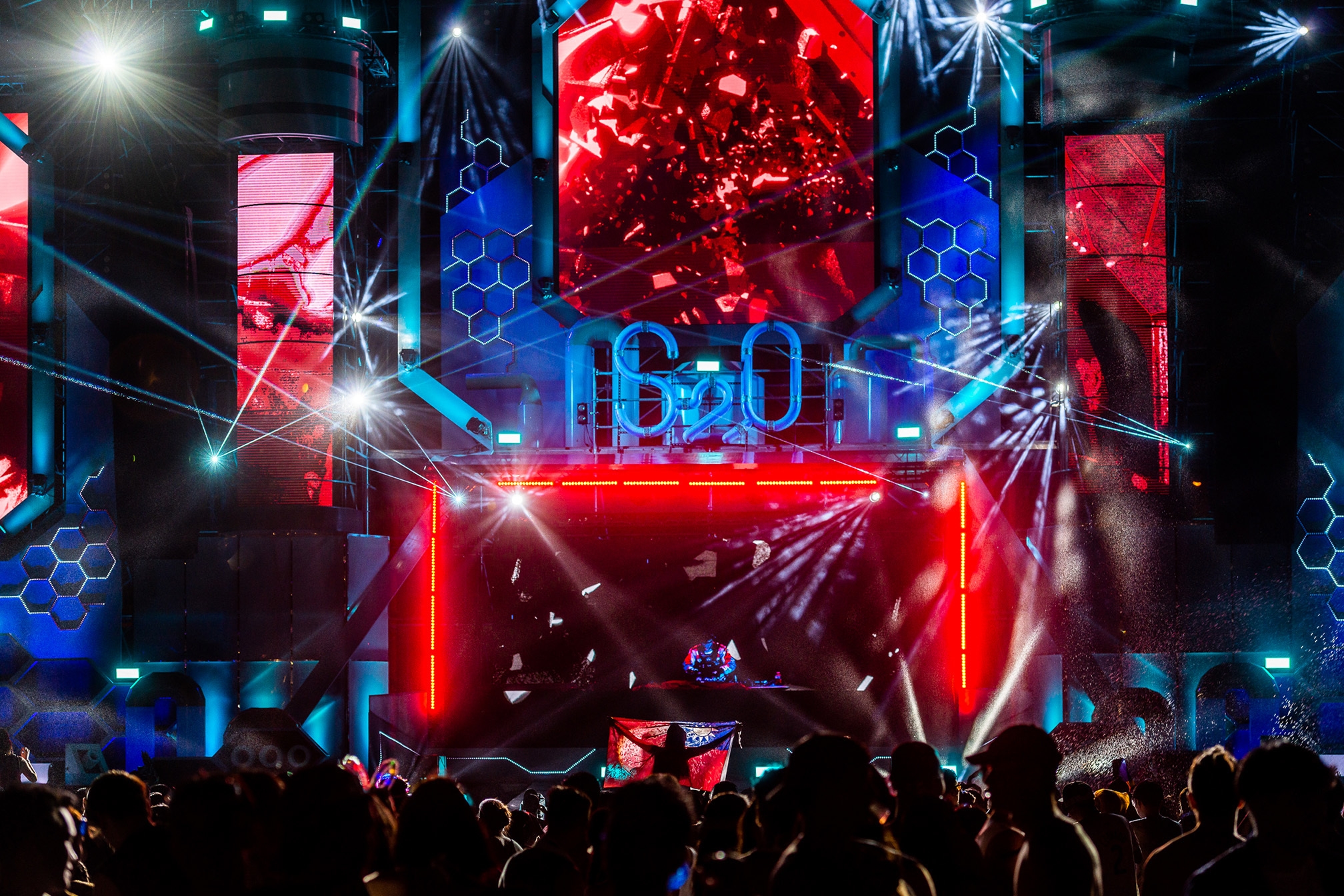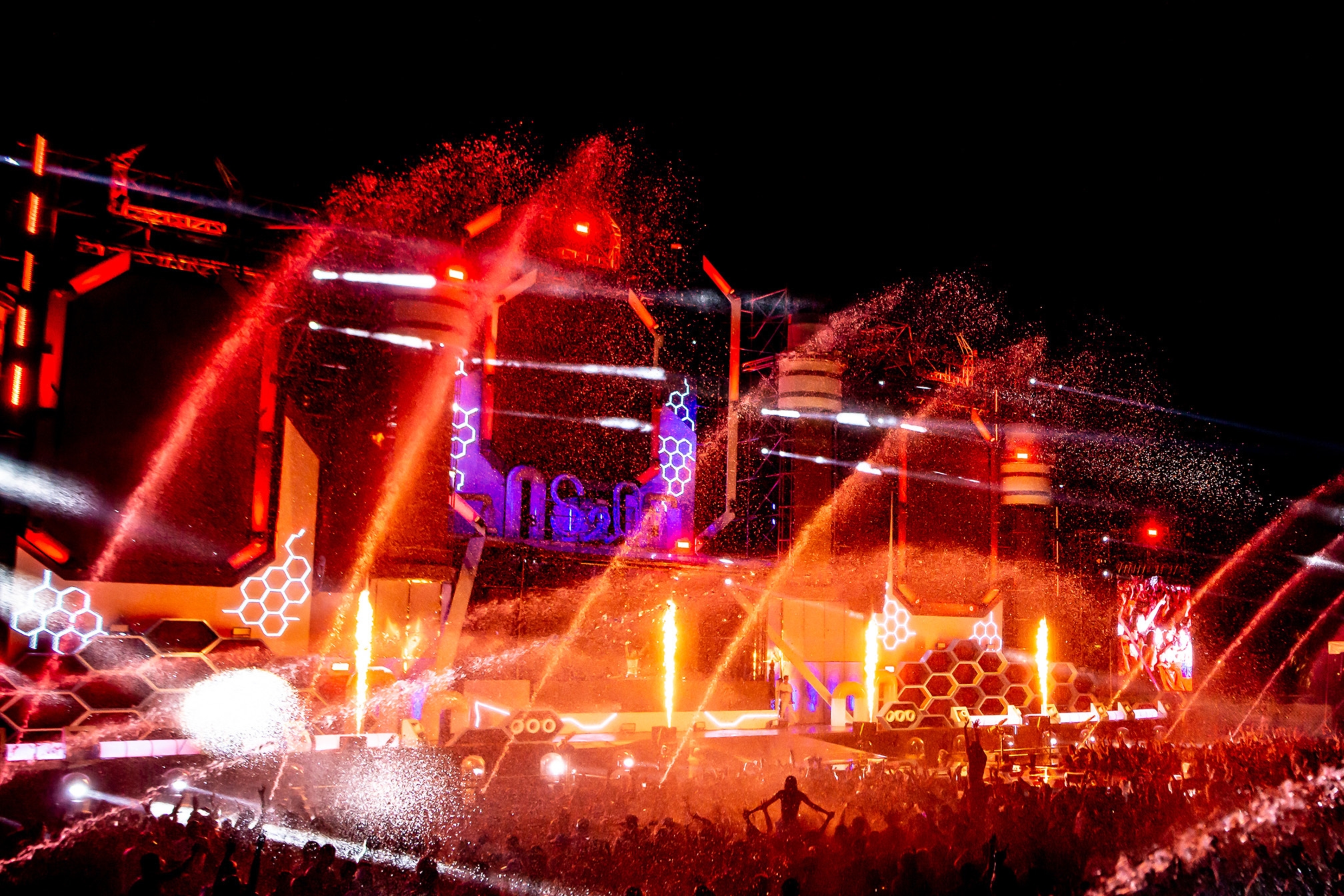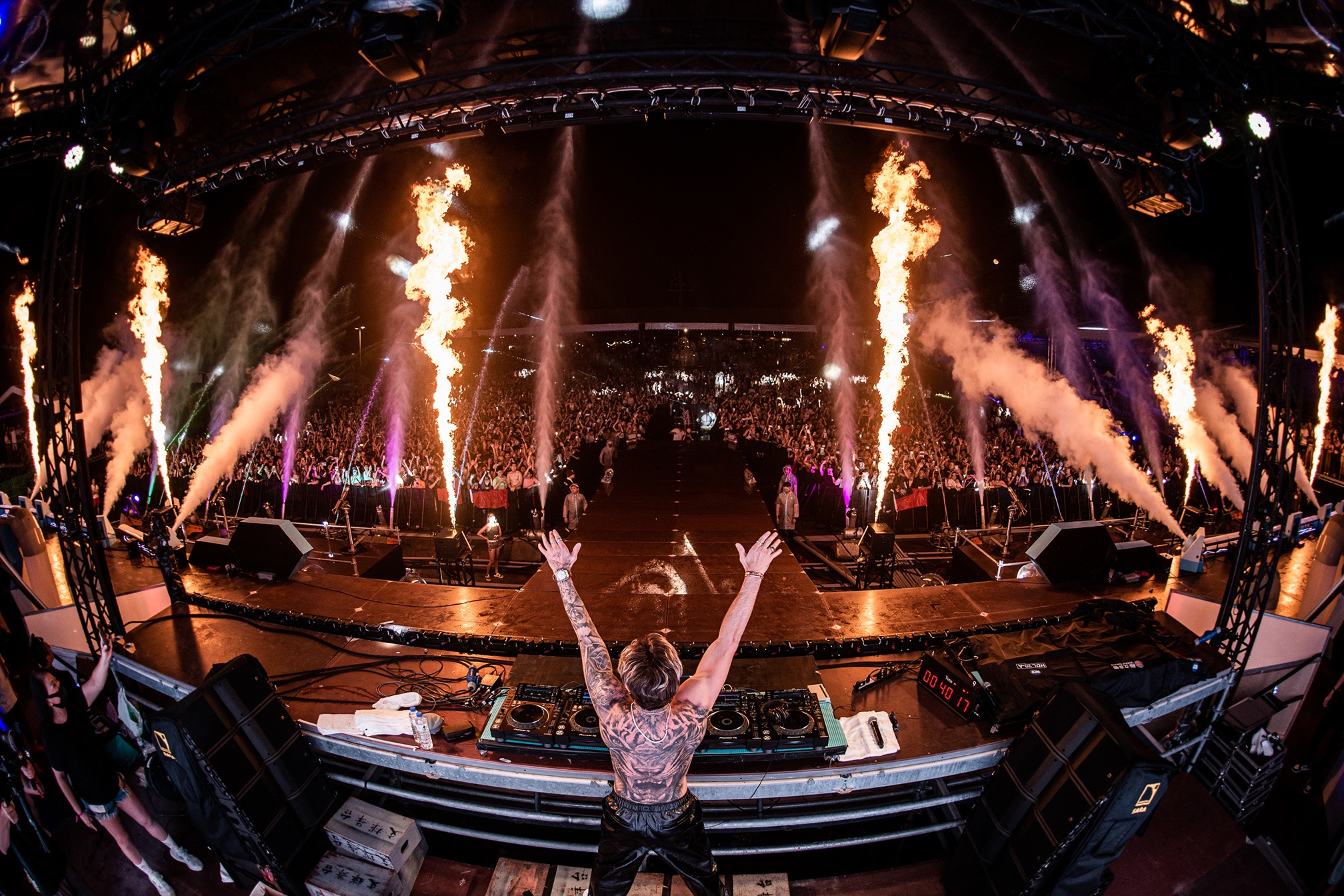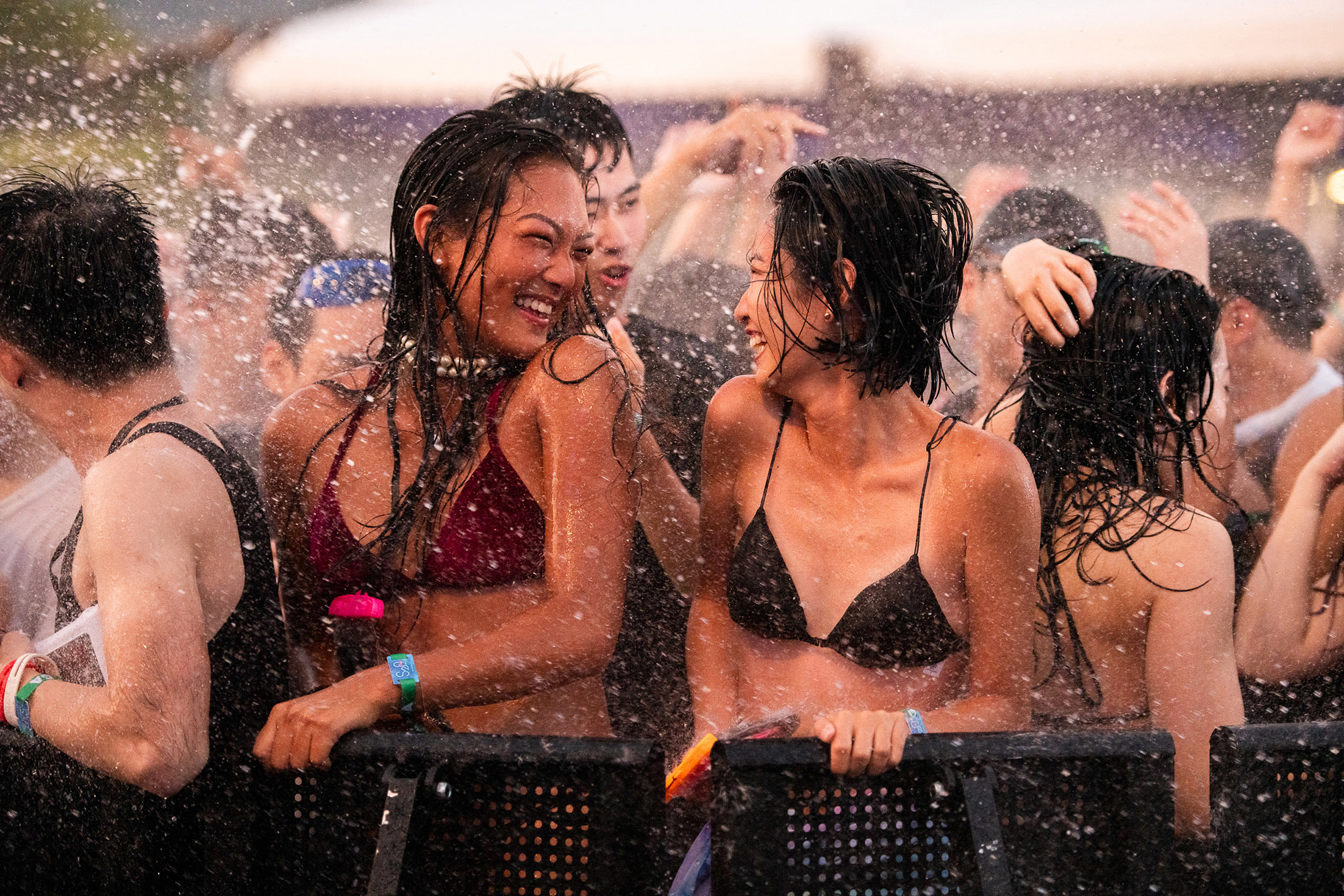 Features
Features
The curious case of Taiwan: Why the small island nation is the best place on the planet right now
Lessons from a fully restarted music market that just hosted a 25,000 person festival
We need to talk about Taiwan.
The small island nation is densely packed with welcoming people, extraordinary food and a criminally underrated music scene. It’s also home to about 23 million people on an island that is just 400 kilometers from north to south and 145 kilometres at its widest point. The population density of the island nation is 649 people per square kilometer. By comparison, the USA has a population density of around 36 people per square kilometer (let that sink in for a minute). In the early days of the COVID-19 outbreak, Taiwan quickly closed its borders and miraculously escaped relatively unscathed, recording just 498 cases from the onset of the pandemic until writing. Taiwan hasn’t reported a locally transmitted case since April 12, despite never instituting lockdown measures, and has been cast as a success story around the world. As such, life on the island has almost returned to normal: school is in session, restaurants are full and, best of all, Taiwan's nightlife is having a moment.
How is that while much of the world is being decimated by the coronavirus catastrophe, people in Taiwan are sipping on spiked bubble tea cocktails and DJs are playing to crowds of 25,000? Maybe it’s not a miracle at all….
Alan Hsia, Chief Business Development Officer at theLOOP, credits a swift response by the government and vigilance by citizens at every level for stamping out the virus before it had a chance to wreak much havoc.
“From experience, we know to dodge a virus takes collaboration and communications from everyone (central government, city government, and the people),” Alan said to Mixmag Asia.
Alan operates several high profile spaces in Taiwan: OMNI, ALTA, KOR and CÉ LA VI. Although the government never mandated any closures, he along with many other venues voluntarily closed their doors out of sheer social responsibility. Also impressive, some never closed at all.
“The government never requested or hinted for any of our venues to be shut-down. We decided as a company to temporarily shut down OMNI Taipei, KOR Taipei and ALTA Taichung but kept CÉ LA VI Taipei open because the venue is 70% outdoors.”
Most venues in Taiwan reopened as quickly as they closed with the average closing time sitting at around a month and a half. The short time is with thanks to continuous and transparent communication between government officials and the public as well as support from high up in implementing protocols to ensure the safety of guests. Alan explained that from the get-go the health department was in close touch with their headquarters because his company exclusively focuses on high volume high traffic venues.
“Great influence comes with great responsibilities. At the early stages of the outbreak, we worked closely with the government to secure surgical grade masks for our staff and customers.”
But with borders sealed shut, how are venues surviving without tourism? Since reopening, Alan says his clubs and lounges have been enjoying their best summer yet in terms of finances and good times (theLOOP has been operating venues in Taiwan for around two decades). “In the past, people would travel outwards during the summer…this makes summer season into somewhat of a low-season for nightlife. This summer has been amazing for business because people don't want to take the risk of travelling outwards. The most notorious Taiwanese clubbers and businessmen are all back in Taiwan from Hong Kong, Shanghai, Beijing, Shenzhen, Singapore and Thailand. Walking into KOR Taipei lately has been like partying with an all-star cast of Asia regionals. It's been a lot of fun.”
Alan’s clubs, however, largely cater to big spenders and mainstream electronic music. On the other side of town, although underground clubs are for the most part all open, it’s not so much business as usual (but almost). Much like the bigger clubs, underground spaces like Pawnshop closed for around a month and a half and b1 closed its doors for just 21 days. Both clubs also shut voluntarily despite their smaller budgets.
“As one of the most interesting underground clubs, we felt we needed to be responsible for the community,” says Lloyd Chiu, who operates b1. “The decision to close down the club was not forced by any authority, but the health and safety of our society are more important to us. By closing for a short amount of time, we knew we would overcome the most dangerous time that the virus could spread.”
Since reopening, Chiu observes that some people have definitely scaled back going out at night. In the past, the club relied on international acts like Oskar Offerman, Intergalactic Gary and DJ Boring to draw large crowds, so they’ve had to adapt their business model and now focus their events on local culture and talent.
He adds that other underground businesses in Taiwan haven’t been so lucky and have lost revenue while others have closed or are still struggling. But still, he says he’s lucky to be in Taiwan, adding that “we could not have done any better.”
"We consider this difficult time as an opportunity for us to review and adapt ourselves to better fit the current situation. Creativity, flexibility and speed play a key role for us in this evolution.”
Despite there being no local infections in many months, Taiwan hasn’t let its guard down either and small indoor venues like b1 are still enforcing safety measures. The club invested in a high-temperature recognition system and checks people on the way in, they ask people to fill in a health declaration form and requires that clubgoers wear a mask inside the venue. We asked Chiu if he ever experienced any resistance to the safety measures, especially the mandatory mask requirement, to which he replied: “of course not.”
Taiwan’s diligence and hard work curbing the coronavirus became especially apparent last month when it hosted its first large-scale event while the rest of the world is reporting festivals and concert cancellations across the grid. The first high capacity event on the island saw Taiwanese pop star Jay Chou make headlines after performing a string of concerts to a sold-out crowd of 10,000 people in Taipei. Lauded as a success story that was apparent through photos of a fully masked crowd, the highly publicized event paved the way for the next big thing: a festival.

Just a little over two months ago, S2O Festival in Taiwan announced on Facebook that it would be holding its second event in Taiwan in September (the water festival comes from Thailand, which is held annually to celebrate Songkran — and was cancelled its home country this year). Initially, it was expected to be an all-local affair because of, you know, travel bans and the global pandemic, but in August, the organisers changed everything by announcing two international headliners.
When we say changed everything, we mean S2O Festival in Taiwan has ultimately paved the way for how festivals will likely unfold for months, if not years, to come. The organisers took a colossal risk in mapping out safety measures for 25,000 people, quarantined two DJs and their teams and in doing so, created a blueprint for operating a festival with international headliners in the new normal.
Was it difficult?
Yep.
Was it worth it?
We’ll get to that later…
“There were so many ever-changing regulations,” said Brian Tsai, CEO and founder of Spunite, speaking on behalf of SIE, organisers of S2O Taiwan. “It was like every week we had to implement new protocols to adhere to the governments and the CDC’s new regulation.”
Brian went on to explain that although there had been large-scale events that took before S2O, it was the first festival and few government agencies wanted to shoulder the responsibility of green-lighting one of the first festivals in the world to take place during a pandemic.
“Everyone was especially cautious and a lot more attention was needed. Before COVID, when it came regulations, sometimes they would let us off. This time, there was definitely no slack.”
The operations teams had to go through safety and precaution meetings sometimes four or five times with several different government departments. Even still, many didn’t want to sign off.
“They eventually signed off on everything….two weeks before the event, which caused a lot of problems. It was just madness. It took a lot of extra manpower and in the end, there were a lot of elements about the event not up to our usual standard. BUT, it was just such a big feat to have an event at all.”
On top of health and safety, they also had to secure work visas for international acts.
Following an all-virtual event they did earlier in the summer, the originally planned to do S2O Festival with a full line-up of virtual sets from international acts. “But after we announced the first virtual DJ, there was a lot of backlash. So we found six DJs that were willing to quarantine.”
They started with six artists who agreed to do a 14-day quarantine after arriving in Taiwan, but four ended up dropping out. One wasn’t happy with the quarantine arrangements, another had families that were reluctant to let them go and another wasn’t able to collect his work visa after the Taiwanese consulate in their home country closed following an outbreak.
But Spanish DJ Danny Avila and Dutch DJ Mike Williams made the trek and broadcasted videos to the world with enough energy to make even the most underground music lover tear up. Both the artists and crowd showed the world what it was missing out on.

"The quarantine went by really fast," Mike Williams said to Mixmag Asia. "My tour manager and I brought a lot of stuff to keep busy like books, video games and gym equipment. We also built a small studio so I could work as well. The accommodation was really big so we had enough space."
Off the back of the festival, both DJs lined up a string of shows around Taiwan, playing clubs like OMNI, ALTA and Wave in front of sold-out crowds and making lots of appearances out with locals in between. Country-wide tours have already been happening for months, with artists like RayRay also taking the downtime from travelling around the world to nurture her fan-base across Taiwan. A festival coupled with a small tour and several weeks immersed in a new culture, we asked Mike Williams if it — the quarantine, the travel, the never ending health checks and all the headaches — was it worth it? (question of the year)
"For sure! The four shows we did were amazing, and it gave me soooo much energy! So it was totally worth it. I would definitely do it again, after some time off back home."
The final draw at S2O Taiwan was 25,000 over two days, which was up from 20,000 when it debuted in Taiwan in 2019. That said, the organisers expected more since the last major festival in Taiwan was in September of 2019. But considering Taiwan’s borders remain shut, they did well catering to an all-local audience while at the same time solidifying Taiwan’s position as in important music market. Before the pandemic, Taiwan was just beginning to really establish itself as a music destination, and around 20% of S2O's audience had been made up of international guests, up from 5% in 2015.

Does this success story mean that the future is here?
Ultra Taiwan was also previously licensed by Spunite, and originally planned for November of this year. While we imagine Ultra were closely watching to see how S2O Festival unfolded, there is still no official word about whether it will take place this year.
Ultra wouldn’t have been the only ones watching to see how S2O did. Within days of the festival ending, Creamfields Taiwan began teasing a 2020 event on their Facebook page. Although no date or inkling of a line-up was announced, we’re anticipating they will evolve the S2O model and feature even more international acts. In the same breath, we’re expecting festivals around the world to also have eyeballs on how Taiwan is doing it since it is arguably the first market to have almost fully restarted its music scene. Now, if only governments and citizens could follow suit, too.
“One of the reasons I wanted to do this event was to bring some kind of hope for people around the world," Brian adds. "If you do the quarantines right, and follow your governments health regulations, the chance of going back to normal sooner is a lot higher.”
“We’re proof. Taiwan never had a lockdown but everyone wore a mask. And pretty much everyone followed the guidelines that the government gave us. We were able to have this event because everyone participated in preventing the spread of this virus. It’s a success story that I want to share with the EDM community.”
He certainly doesn't want to believe this is the way things have to be.
“This is not the new normal. The new normal can’t be what’s happening around the world right now, which is a car raves and people being sectioned off in boxes. It just can’t be like this and it doesn’t make sense for the future.”
We ask him again if it was all worth it?
“Emotionally, definitely.”
All images courtesy of Lorenzo Pierucci @ No Fame Agency


